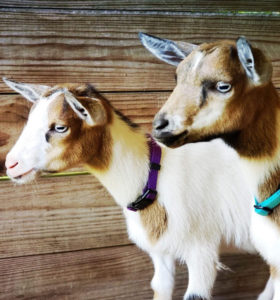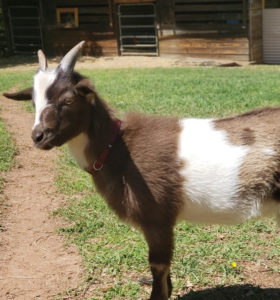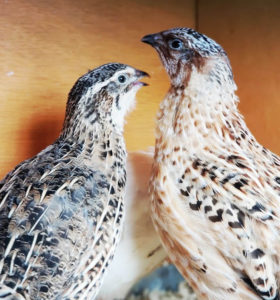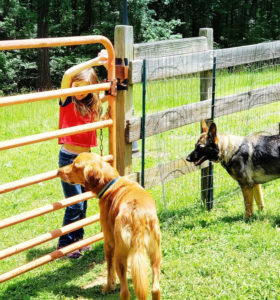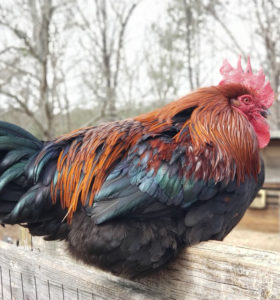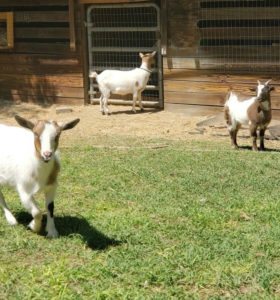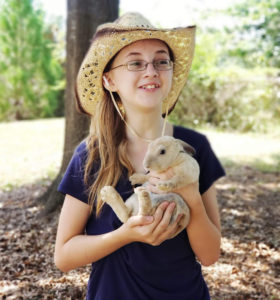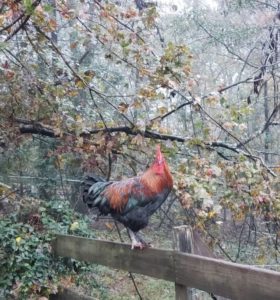Bringing joy and productivity to your homestead through the delightful experience of raising baby chicks is both rewarding and essential. Discover the key steps and tips for fostering friendly baby chicks that will thrive on your homestead in this comprehensive guide.
Choosing the Right Breed
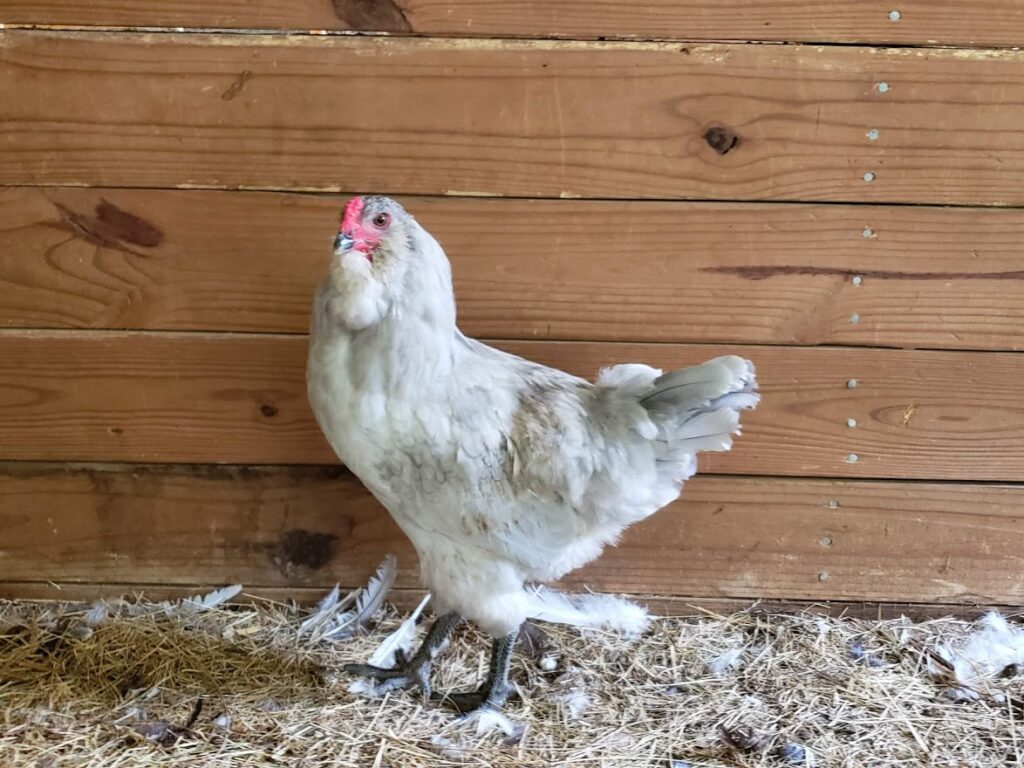
Selecting the appropriate breed is a pivotal decision when embarking on the adventure of raising friendly baby chicks. Different chicken breeds exhibit varying temperaments, sizes, and levels of sociability. Here’s a more in-depth exploration of factors to consider when choosing the right breed for your homestead:
Temperament and Friendliness:
- Rhode Island Reds: Known for their hardiness and friendly disposition, Rhode Island Reds are an excellent choice for those seeking a breed that adapts well to different environments. They tend to be docile and enjoy human interaction.
- Sussex: Sussex chickens are celebrated for their calm and gentle nature. They are known to be friendly and are often recommended for families with children. Their approachable demeanor makes them a great addition to a homestead seeking sociable chickens.
- Orpingtons: Orpingtons are recognized for their friendly and affectionate behavior. These chickens are often described as gentle giants, making them an ideal choice for a homestead where a more laid-back and amiable flock is desired.
- Easter Eggers: Renowned for their colorful eggs and friendly personalities, Easter Eggers are a popular choice for backyard flocks. These chickens are known to be inquisitive and can add a delightful variety of egg colors to your collection.
- Black Copper Marans: If you appreciate dark chocolate-colored eggs and a friendly disposition, Black Copper Marans are worth considering. While primarily known for their rich eggs, they can also be friendly and sociable additions to your homestead.
Egg Production and Purpose:
- Rhode Island Reds: In addition to their friendly nature, Rhode Island Reds are prolific egg layers. If your homestead prioritizes both friendliness and a steady supply of eggs, this breed could be an excellent fit.
- Sussex: Sussex chickens are dual-purpose birds, meaning they are valued for both egg production and meat. If you’re looking for a breed that offers versatility and a friendly demeanor, Sussex could be the perfect choice.
- Orpingtons: While Orpingtons are not the most prolific egg layers, they make up for it with their friendly and calm demeanor. Consider them if you’re seeking a breed that excels in temperament and still provides a moderate egg supply.
- Easter Eggers: Besides their friendly nature, Easter Eggers lay eggs in various pastel shades, adding an aesthetically pleasing element to your egg collection. They are generally reliable layers and contribute to the overall diversity of your flock.
- Black Copper Marans: Recognized for their deep brown eggs, Black Copper Marans are a favorite among those who appreciate high-quality, dark-shelled eggs. They bring both egg production and unique coloring to your homestead.
Adaptability to Climate:
- Rhode Island Reds: Known for their resilience, Rhode Island Reds can adapt to various climates. If your homestead experiences diverse weather conditions, this breed’s hardiness may be advantageous.
- Sussex: Sussex chickens are known to handle cold weather well. If you live in a region with colder temperatures, Sussex may be a suitable choice for your homestead.
- Orpingtons: Orpingtons have a reputation for tolerating both heat and cold. If your homestead experiences extremes in temperature, this adaptable breed might be a good match.
- Easter Eggers: These chickens tend to be resilient and can adapt well to different climates. Their hardiness makes them suitable for homesteads experiencing varying weather conditions.
- Black Copper Marans: With a robust constitution, Black Copper Marans are known to handle different climates effectively. They can thrive in both warm and cold environments, providing flexibility for your homestead.
Understanding the unique characteristics of each breed will guide you in selecting the perfect fit for your homestead. Whether you prioritize friendliness, egg production, or adaptability, choosing the right breed sets the foundation for a successful and enjoyable chicken-raising experience on your homestead.
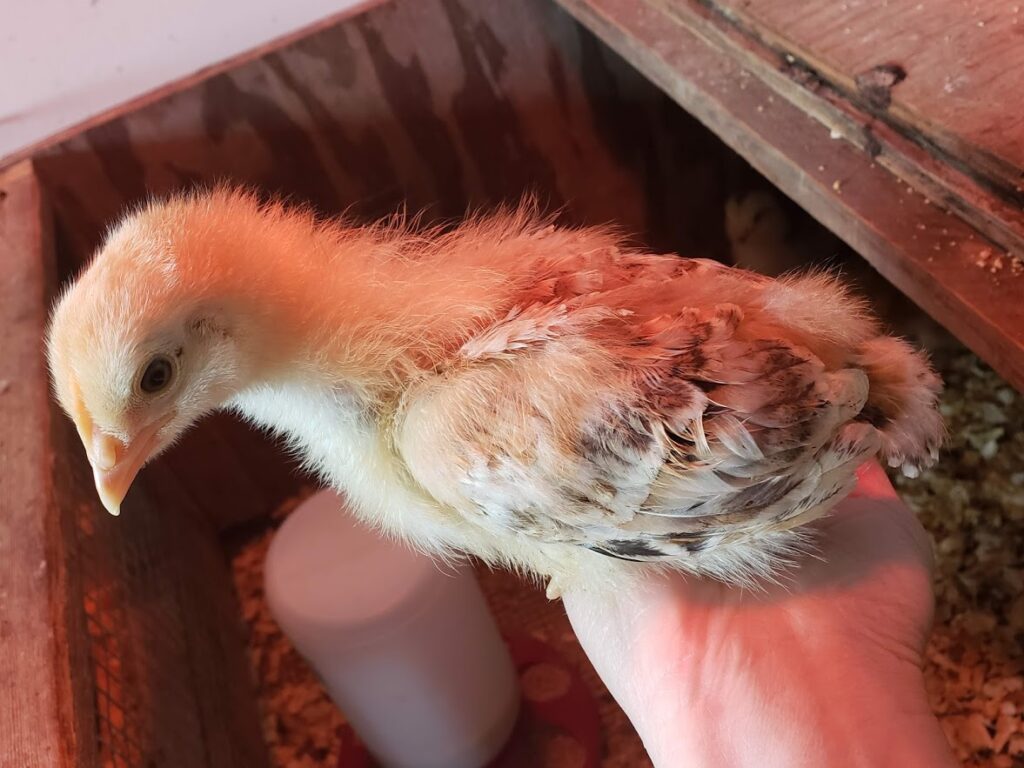
Creating a Cozy and Secure Brooder
Brooder Setup:
- Container Selection: Choose a draft-free container for your brooder. A wooden or plastic container with high sides works well. Ensure that the brooder is spacious enough to accommodate the number of chicks you have.
- Heat Source: Install a reliable heat lamp to maintain the optimal temperature for the chicks. For the first week, keep the temperature at around 95°F. Gradually decrease the temperature by 5°F each week until the chicks are fully feathered and can regulate their own body temperature.
- Bedding Material: Use clean and absorbent bedding material. Pine shavings are a popular choice as they are comfortable for the chicks and absorb moisture effectively.
Temperature and Light:
- Temperature Monitoring: Regularly monitor the temperature in the brooder using a thermometer. Adjust the height of the heat lamp to maintain the recommended temperature. Chicks should have enough space to move away from the heat source if they become too warm.
- Natural Light Exposure: While artificial lighting is essential, providing exposure to natural light during the day helps regulate their circadian rhythm. This contributes to healthier sleep patterns and overall well-being.
Ventilation and Draft Prevention:
- Proper Ventilation: Ensure good ventilation in the brooder to maintain fresh air circulation. Adequate ventilation prevents the buildup of harmful gases and promotes respiratory health.
- Draft Prevention: Chicks are sensitive to drafts, so position the brooder in a location where it is protected from cold drafts. Use cardboard or other materials to block any drafts that may enter the brooder.
Space and Accessibility:
- Adequate Space: Provide enough space for the chicks to move around comfortably. Overcrowding can lead to stress and aggressive behavior.
- Accessibility to Food and Water: Place feeders and waterers in easily accessible locations. Chicks should not have to travel far to reach their essential resources.
By paying careful attention to these brooder conditions, you create a nurturing environment that supports the healthy growth and development of your baby chicks. A well-prepared brooder sets the foundation for raising friendly and content chickens on your homestead.
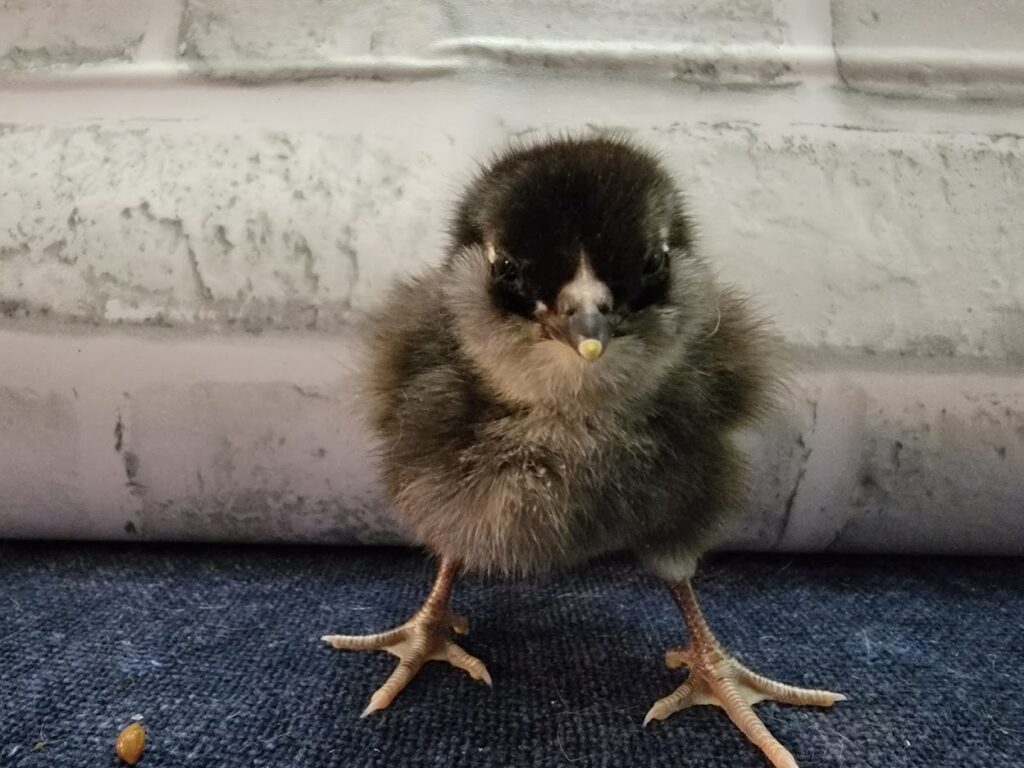
Nurturing Proper Nutrition for Growth
Ensuring that your baby chicks receive a well-balanced and nutritious diet is essential for their healthy development. Here’s an expanded look at the key aspects of providing optimal nutrition for your young flock:
Choosing the Right Chick Starter Feed:
- Selecting a high-quality chick starter feed is the foundation of a nutritious diet. Look for feeds specifically formulated for young chicks, with a protein content ranging from 18-20%. This ensures that your chicks receive the essential nutrients required for robust growth and development.
- Consider organic or non-GMO options if you prefer a more natural approach to feeding your chicks. Read the labels carefully to understand the ingredients and nutritional composition of the chick starter feed you choose.
Introduction of Supplementary Nutrients:
- While chick starter feed forms the core of their diet, introducing supplementary nutrients can further enhance their overall health. Consider providing chick-sized grit to aid in digestion, as well as crushed oyster shells or a calcium supplement to support the development of strong bones and eggshells.
- Vitamin and electrolyte supplements can be beneficial, especially during periods of stress or extreme weather conditions. These supplements contribute to a robust immune system and help combat common chick ailments.
Fresh Water Accessibility:
- Access to clean and fresh water is paramount for the well-being of your baby chicks. Ensure that waterers are kept clean and are easily accessible to the chicks. Regularly check for any contaminants or debris that may accumulate in the water supply.
- Hydration is crucial, especially during warm weather or when chicks are transitioning to new environments. Maintaining proper hydration supports digestion, nutrient absorption, and overall vitality.
Feeding Schedule and Observations:
- Establishing a consistent feeding schedule is beneficial for the chicks’ routine. Provide access to chick starter feed throughout the day, and monitor their eating habits. Adjust the quantity of feed based on their consumption patterns and overall growth.
- Observing the chicks for any signs of distress, abnormal behavior, or health issues is essential. Changes in eating habits, lethargy, or abnormal droppings may indicate potential health concerns and prompt attention is crucial.
Transitioning to Grower Feed:
- As your baby chicks grow, they will eventually outgrow the chick starter feed. Transition them to a grower feed designed for adolescent chickens. These feeds typically have a slightly lower protein content, aligning with the nutritional needs of growing chickens.
- A gradual transition is key to avoiding digestive issues. Mix the chick starter feed with the grower feed over a period of one to two weeks, gradually increasing the proportion of grower feed.
Providing a well-rounded and nourishing diet for your baby chicks lays the foundation for their overall health and development. A careful balance of essential nutrients, supplements, and attentive observation will contribute to a thriving flock on your homestead. Remember that the nutritional needs of your chicks may evolve as they grow, so staying attuned to their requirements is crucial for their long-term well-being.
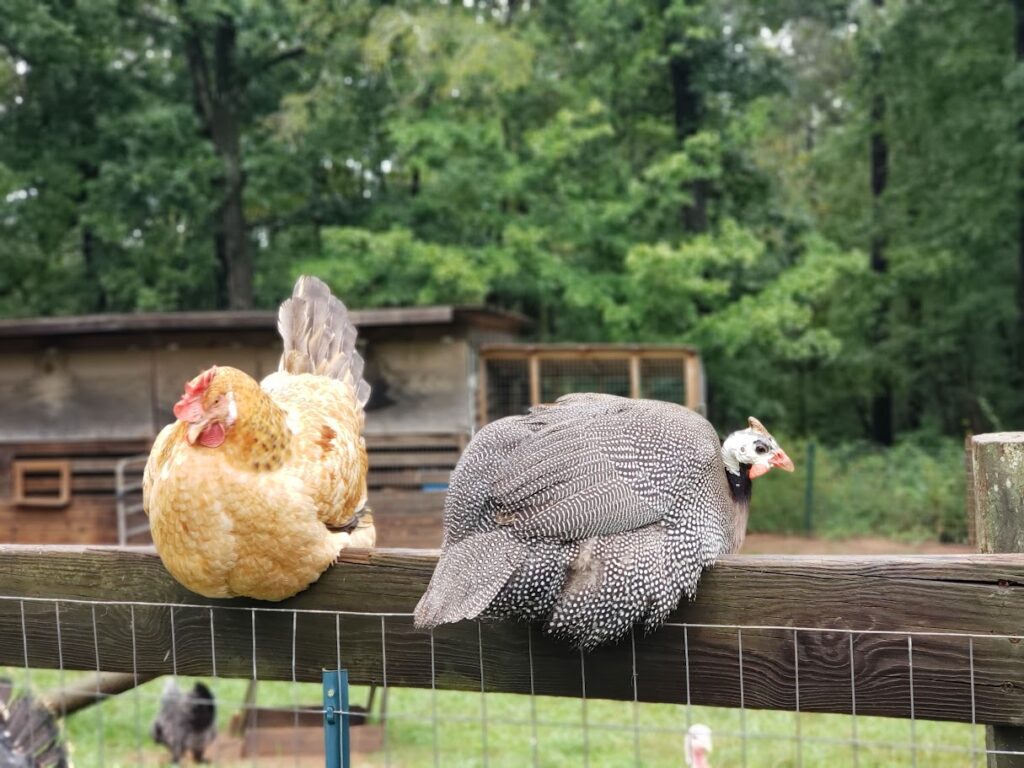
Creating a Positive Social Environment: Handling, Socializing, and Fostering Community Harmony
Building a positive social environment for your chickens involves a combination of gentle handling, intentional socialization, and the creation of a stimulating and harmonious living space. Here’s a detailed guide on how to nurture a happy and interconnected chicken community:
Gentle Handling and Socialization:
- Early and Gentle Interactions: Start building trust from the moment your chicks arrive. Handle them gently, allowing them to become familiar with your presence. Frequent, positive interactions from an early age contribute to the development of a trusting relationship.
- Speaking Calmly and Using Treats: Chickens respond well to calm and soothing voices. Engage with your chickens using a gentle tone, and consider offering treats like mealworms or small bits of fruit. This positive reinforcement creates positive associations with human interaction.
- Gradual Exposure to Handling: Introduce handling gradually, allowing chicks to acclimate to being touched and held. Avoid sudden movements or loud noises that may startle them. As they grow, continue handling to reinforce a sense of security and familiarity.
Creating a Stimulating Environment:
- Toys and Enrichment: Chickens are intelligent and benefit from a stimulating environment. Provide toys, hanging treats, or even mirrors to keep them engaged and entertained. Simple objects like cabbage pinatas or a swinging perch can add excitement to their living space.
- Natural Elements: Incorporate natural elements into their surroundings, such as logs, branches, or rocks. This not only provides opportunities for exploration but also mimics their natural environment. Dust baths and scratching areas contribute to their well-being.
- Variety in Feed and Foraging Opportunities: Introduce variety in their diet and create foraging opportunities. Scatter grains or seeds in different areas to encourage natural foraging behaviors. This not only keeps them physically active but also mentally stimulated.
Fostering Community Harmony:
- Choosing Complementary Breeds: When selecting breeds for your flock, consider their compatibility. Some breeds are naturally more social, while others may be more independent. Choosing complementary breeds can contribute to a harmonious and cohesive flock.
- Introducing New Members Gradually: When introducing new chickens to the flock, do so gradually and in a controlled manner. This minimizes stress and potential conflicts. Allow for supervised interactions and monitor their behavior to ensure a smooth integration.
- Providing Adequate Space: Avoid overcrowding, as it can lead to stress and aggression. Ensure that your coop and outdoor space provide enough room for all chickens to move freely. Sufficient space promotes a sense of well-being and minimizes territorial disputes.
Chickens are social animals, and fostering a sense of community is crucial. Keep multiple chicks together to prevent loneliness and consider introducing them to older chickens once they’re ready. This promotes positive socialization and helps them integrate into the existing flock.
Raising friendly baby chicks for your homestead is a journey of dedication and joy. By choosing the right breeds, providing a nurturing environment, and promoting positive socialization, you’ll have not only happy and friendly chickens but also a thriving and harmonious homestead community. Enjoy the experience of watching your fluffy chicks grow into valuable members of your homestead.


